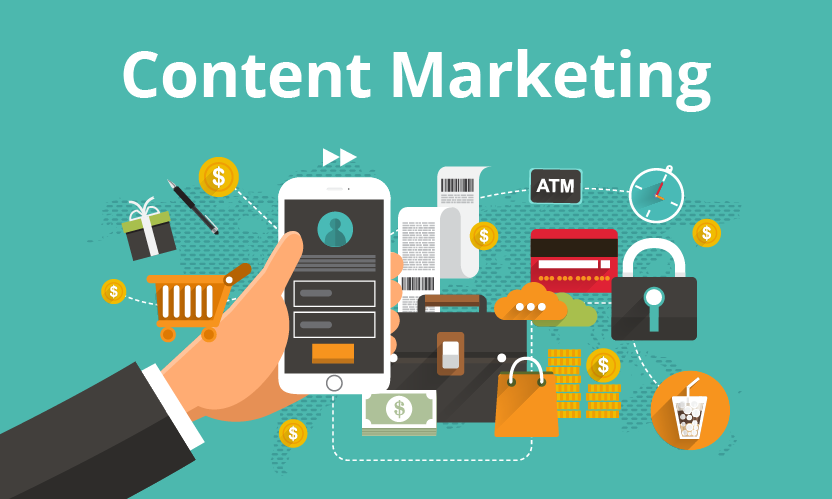
In the dynamic landscape of digital marketing, one term that has garnered immense attention and recognition is "Content Marketing." But do you know what is content marketing?
Content marketing can be defined as a strategic marketing approach focused on creating and distributing valuable, relevant, and consistent content to attract and retain a clearly defined audience.
If you are interested in implementing content marketing in your business, keep reading and find out more.
What is Content Marketing?
Content marketing is a multifaceted approach including planning, creation, distribution, sharing, and publication of content across various channels such as social media, blogs, websites, podcasts, apps, press releases, and print publications.
Its primary objective is to engage the target audience and enhance brand awareness, sales, engagement, and loyalty.
Related Reading: How Content Marketing Drives Sales?
7 Types of Content Marketing
Incorporating diverse types of content marketing strategies can significantly amplify the reach and impact of your marketing efforts:
1. Blog Content Marketing
Blogs serve as dynamic platforms allowing for creativity in content purpose and topic. They enable promotion of internal and external content through links, integration of social share buttons, and inclusion of product information.
2. Online Content Marketing
This pertains specifically to content published on web pages.
A robust online content marketing strategy aids in achieving higher rankings in search engine results pages (SERPs) and facilitates targeted audience engagement.
3. Social Media Content Marketing

With billions of global users across platforms like Facebook, Instagram, LinkedIn, and others, social media marketing has become indispensable.
Leveraging various content formats such as photos, live videos, pre-recorded videos, and stories can effectively engage audiences.
4. Infographic Content Marketing
Infographics present content, information, and data in a visually intuitive format, making them easily comprehensible.
Through a blend of concise wording, succinct statements, and vivid imagery, infographics serve as an excellent tool for conveying your message effectively.
Particularly useful for simplifying educational or intricate topics, infographics ensure that all audience members can grasp the information effortlessly.
5. Video Content Marketing
Video content has gained immense popularity, with a significant portion of consumers preferring it for learning about products or services.
Video marketing not only enhances conversions and ROI but also fosters stronger relationships with the audience.
6. Podcast Content Marketing
The growing popularity of podcasts, with millions of listeners worldwide, presents a unique opportunity for businesses to create and share content.
Podcasts offer flexibility in content topics, episode cadence, guest selection, and advertising strategies.
7. Paid Ad Content Marketing
Utilizing paid advertisements enables you to expand your reach across a wide audience spectrum and strategically position your brand where visibility is paramount.
When integrated with inbound marketing strategies, paid ads offer heightened benefits.
Various platforms such as social media, landing pages, banners, and sponsored content serve as effective channels for distributing paid advertisements.
Why Is Content Marketing Important?

Content marketing is indispensable because it transcends mere content creation and sharing. It embodies a strategic methodology aimed at captivating, engaging, and delighting your target audience with valuable and pertinent information.
Here are some pivotal advantages of content marketing:
Enhanced Organic Visibility: Elevate your search engine rankings, drive increased traffic, and bolster brand recognition by crafting content that aligns seamlessly with your audience's needs and search intent.
Increased Conversions: Transform more website visitors into leads and customers by offering informative and compelling content that resonates with your target audience and instills confidence in conducting business with you.
Relationship Building: Cultivate loyalty leading to repeat purchases and word-of-mouth referrals by crafting content that not only aligns with your audience's interests but also prompts interaction, sharing, and feedback.
Authority Establishment: Establish yourself as an expert in your field by producing high-quality content that showcases your expertise, insights, and opinions. This fosters trust and positions you as a credible source of genuinely valuable information.
6 Best Content Marketing Tools in 2024
While effective content marketing relies on a robust strategy rather than tools alone, the right tools can significantly streamline the process and ensure optimal outcomes.
Here are some noteworthy examples worth exploring:
1. Google Docs
Facilitate seamless collaboration across multiple projects with your team, regardless of their location, using Google Docs.
This free platform integrates seamlessly into any budget and simplifies project management.
2. Grammarly
Even content creators who are meticulous about details can benefit from a second perspective to review their work and identify areas for improvement.
Grammarly is an indispensable tool for detecting spelling, grammar, and punctuation errors that could undermine the effectiveness of a blog post or piece of copy.
For more detailed information about this platform, read our guide on Grammarly Review.
3. Canva
Elevate your content with visually appealing and professional graphics.
Canva simplifies the creation of unique images and visual assets, whether for blog posts or website enhancement, with its user-friendly interface.
4. Airtable
The extensive data collection and analysis necessary for your content marketing campaign necessitate a reliable storage solution, and Airtable emerges as a viable option.
Airtable proves ideal for managing vast amounts of data and maintaining organization throughout your project's lifecycle. Additionally, it offers access to features such as editorial calendars, campaign tracking tools, influencer management interfaces, and more, facilitating comprehensive campaign management.
5. BuzzSumo
While you're likely to generate numerous excellent content concepts, having a user-friendly tool at your disposal can provide valuable support when you require additional ideas.
BuzzSumo aids in identifying trending topics across multiple platforms and facilitates pinpointing top thought leaders for exploration. Moreover, it excels in tracking diverse performance metrics, enhancing your content strategy's effectiveness.
6. Ahrefs
Ensure your content is optimized for search engines with Ahrefs.
This comprehensive SEO tool simplifies keyword research, tracks keyword rankings, analyzes competitor strategies, and provides valuable insights for enhancing your content's visibility and impact.
Final Words on What is Content Marketing
I hope this guide not only answered the query, "what is content marketing?" but also provided a solid foundation for getting started with it.
Indeed, content marketing requires patience as it takes time to yield results. However, once it gains momentum, you may notice a significant increase in traffic, leads, and customers.
This is precisely why content marketing remains a favored marketing channel among businesses.
Read More: What is a Content Marketer?

